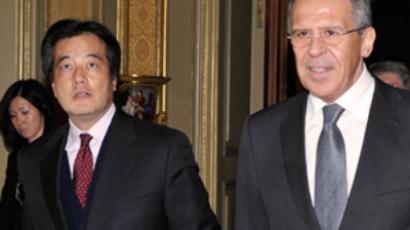Chavistas embrace revolution, suspicious of US policies
To understand why the majority of poor people in Venezuela are suspicious of policies from the United States, the history is in plain view.
It's written all over the walls of Caracas; an era still fresh in the minds of the Venezuelans. It's known as the Fourth Republic.
Carreta Negra community leader Freddy Mendoza of the Lavega barrio recalls, “The memories of the Fourth Republic, for everyone who is 40 or 50 years, are very bitter memories of a situation of extreme poverty, of abandonment, of struggle, of fights.”
“Listen, for many reason, people like me, we supported the struggle in the 90s against what's called the Fourth Republic, we saw many of our friends murdered or jailed by that regime” said Darwin, a Chavista.
A lot of it has to do with the United States. Washington supported the government of the Fourth Republic and to this day rejects the Bolivarian democracy in Venezuela.
“It’s possible that in the United States there are sectors and powers that do not have an interest in this change because they benefited economically from the political reality that was here previously. They supported that political reality to be able to maintain the imperial yokes that subjugated us,” said Adriana Tovar, also a Chavista.
It’s not the only memory ingrained in the minds of Venezuelans. In April of 2002, a military coup temporarily ousted Venezuela's democratically elected President Hugo Chavez. Dozens of people were killed, injured and detained in those dark three days. The temporary coup government that was installed was immediately acknowledged as legitimate by the Bush administration
A mural depicting US President Barak Obama as a trigger happy leader indicates those feelings still exist.
One man said, “When the revolution is expressed through graffiti, it does not mean we’re against the American people. We’re against the policies.”
It's why Chavistas have in their minds, the opposition comprised of the country's minority elite, are plotting to remove their President.
Beaselis Guerra said, “The United States has always been interested in taking our president out of power, so they can be financing the opposition.”
What inspires Chavistas for this revolutionary agenda of independence from foreign dominance was not only Chavez, but Venezuela’s founding father, Simon Bolivar.
Simon Bolivar is considered the Liberator of Latin America. In fact, Caracas is very distinct for that, nearly everywhere you go in the city, you either see his face or remnants of his ideology.
“He fought against all the people that want us to be slaves; that’s why we want to follow all the steps of Simon Bolivar. He’s not only a leader in Venezuela; he’s a leader in Latin America,” said Guerra.
Zulma Galindez, who is a strong supporter of the Bolivarian Revolution said, "For 11 years Latin American people, starting with our own country, are starting to become awake. We have been facing confrontation ever since."
It's a political awakening in motion on a ground level. In its infancy, it can be seen as a flourishing challenge to Capitalism. And to combat the red tide a thriving opposition, aided in various ways by the United States and other foreign elements, aims to reverse the status quo.













